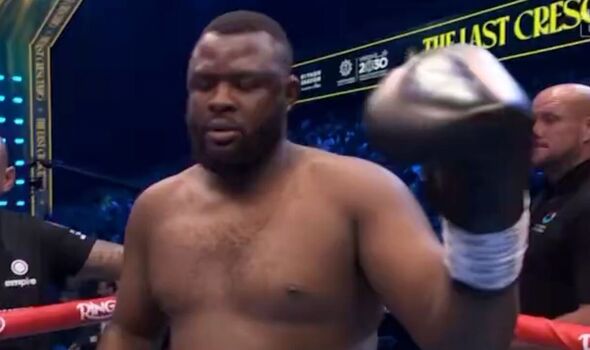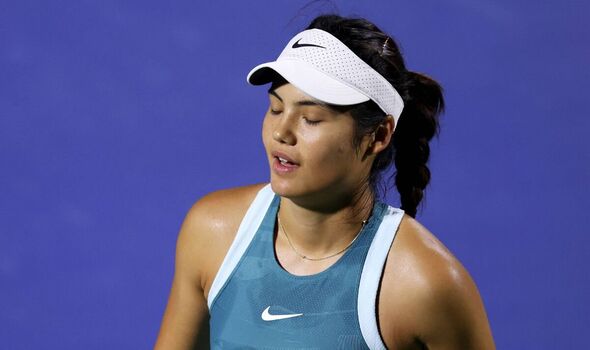Ukraine signs EU deal that sparked months of upheaval; extends cease-fire
June 30, 2014
Chief Justice Roberts joins majority in Hobby Lobby ruling
July 1, 2014It is almost too cliched to seem possible; the manager of the American national side spending his free time driving a VW camper van driving from beach to beach, looking for the perfect surf spot.
A Californian resident, he possesses a marvellous perma-tan and the relaxed demeanour that comes from a life lived in perpetual sunshine.
There is just one thing that doesn’t ring quite true; the German accent that Jurgen Klinsmann will never lose.
Certainly it is difficult to imagine a more serene manager at this World Cup. Watching him stroll around Sao Paulo FC’s training base, which is Team USA HQ for the duration of the tournament, he is utterly in his element.
When there is a skills session he is in the middle of it; when a member of the staff celebrates his birthday Klinsmann leads the singing.
He is the German who should have been born an American, and the man who is looking to make history today as his side face Belgium in their last 16 clash in Salvador.
“He is a friend to all of the players,” says Jermaine Jones, smiling. “He doesn’t look back, he is positive and you can definitely say he is a friend in the team.”
It is hard to imagine players speaking in the same way about Fabio Capello or Alex Ferguson, for example, but Klinsmann is a very different type of coach; inclusive rather than dictatorial. Perhaps it has to do with his upbringing in Stuttgart, where the Klinsmann Backerei is to be found. It was here that Klinsmann’s father, a master baker, taught his son to knead bread, weigh the dough and mix all the right ingredients together.
It is also a place that Klinsmann has never forgotten, having lived above the bakery until he was well into his professional career. His success as a player was built on hard work, rather than outstanding natural ability, but he was top scorer in the Bundesliga with Stuttgart aged 24 before moving on to Inter Milan, Monaco, Tottenham, Bayern Munich and Sampdoria with great success.
His achievements with Germany — captaining West Germany to victory in 1990 and becoming the first player to score at least three goals in three different World Cups — are well documented but still worth repeating.
It was perhaps inevitable he would manage his country, but perhaps the 2006 tournament came too soon. A third-place finish was respectable but could have offered so much more, although perhaps his legacy was encouraging the national side to adopt the attacking style of football they still use under his former assistant, Joachim Loew.
Then followed the undoubted lowlight of his career; a disastrous spell at Bayern Munich that saw him leave Germany for good and return to California, where he had first moved after retiring in 1998.
When USA came calling in 2011 he couldn’t turn them down.
Indeed, speak to those at the American team base — one that is right in the heart of Sao Paulo — and they genuinely feel he is one of their own.
The American positivity comes naturally to him. It was Klinsmann who came into the dressing room after Portugal scored a last-minute equaliser in Manaus and immediately started raising spirits, and it was he who last week ordered his players and their families to book flights home from Brazil for July 14 — the day after the Final in the Maracana.
He ordered them to get ‘nastier’ last year and the inclusion of Jones, a midfielder with a poor disciplinary record, has been the subject of much debate. He has also worked on the team’s mental strength, particularly in regards to what was seen as an inferiority complex against the top sides.
But the results are what count and everyone is impressed — bar, perhaps, the media.
“I am not into the culture of the coach,” says Filip Bondy, of the New York Daily News.
“He is viewed as just another coach, although he is much more positive in his attitude towards life in general than the previous two coaches (Bruce Arena and Bob Bradley).
“He has cut back access to the players. It is a very European thing — the coach is a focus in Europe, and we are not used to that. What we have is a slightly different culture.
“He hasn’t cut off access completely but we used to have round-tables with all the players previously. There are restrictions we are not used to but that is European.”
Klinsmann has also adopted Europeans in other respects, fervently supporting the adoption of dual-national players, particularly from Germany. It was a process started by his predecessors, but five of the current squad speak German as their first language.
“Other teams around the world are also melting pots,” is Klinsmann’s take.
“Look at the German team, with players from Tunisia, Turkey and Poland. The French team in 1998 had a lot of African influence.
“It’s all part of globalisation. American families are spread out through business and the military, but they are still Americans. It’s a wonderful thing and we are tapping into it.”
Globalisation certainly didn’t stop Klinsmann from receiving huge criticism when he picked Julian Green over American icon Landon Donovan for this tournament though.
Yet so far Klinsmann has been vindicated. The players he has chosen love him, and coming through the Group of Death has given them renewed confidence, particularly as the public have fallen in love with the team with some 24.7 million people watching the draw with Portugal.
“Jurgen has been nothing but positive,” explains defender Omar Gonzalez. “He is telling our families to change our flights to July 14 as we will be here until the very end.
“That speaks volumes of how positive he is, how much he believes in this team and it trickles down to all of us.
“We are as confident as he is and we believe in our team. We plan on being here a few more weeks.”
© Irish Examiner Ltd. All rights reserved



